Who are the UK’s political editors? From broadcast to print

All of the UK’s biggest political stories, both print and broadcast, have been approved by the outlets’ political editors. They are the minds behind every news story and coverage involving politics, and these names climbed the journalism ladder thanks to their innovative and critical thinking.
Political editors are some of the best-known names in the industry, bringing in scoops from their overflowing books as well as typically juggling a team of political correspondents and reporters.
These are the country’s main political editors across traditional newspaper outlets and broadcasters, from the BBC to The Sunday Times and GB News to the Daily Mail.
Who are the UK national newspaper political editors?
The Guardian – Pippa Crerar (2022 – present)
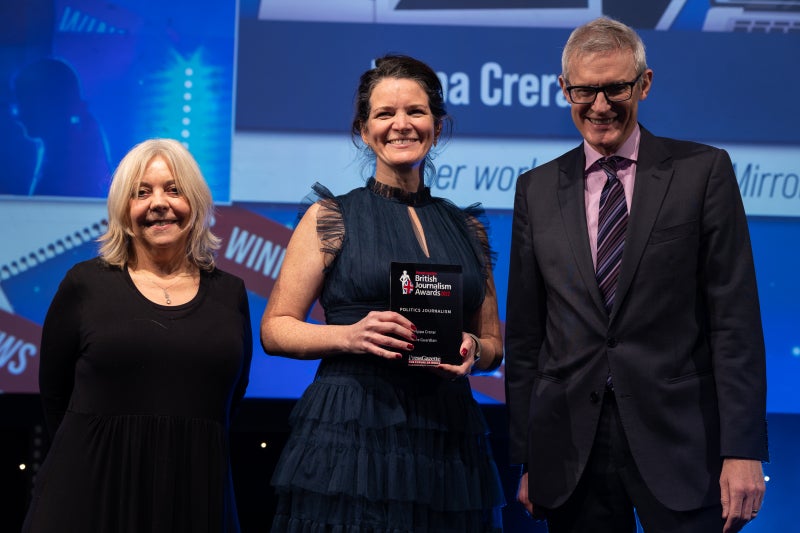
Pippa Crerar, born in Edinburgh, Scotland, attended Newcastle University, obtaining a degree in English. She later took a postgraduate course at City, University of London in newspaper journalism.
Crerar began her journalistic career in 1999 when she received the Scott Trust bursary, which paid for her training and provides work experience at The Guardian for people from under-represented groups in journalism.
During her residency at The Daily Mirror, where she was political editor, Crerar won scoop of the year at the British Journalism Awards along with Guardian journalist Matthew Weaver for their revelation that government advisor Dominic Cummings had broken lockdown rules.
In recent times, the journalist focused on other stories about lockdown-breaking events in Downing Street.
She recently took over from Heather Stewart as political editor at The Guardian. “I know that we’ll do great journalism together, holding politicians and power to account and shining a light on how their decisions impact all of us,” she said.
The Observer – Toby Helm (2022 – present)
Toby Helm worked for the Sunday Telegraph between 1991 and 1996, when he began serving as the Brussels correspondent for the Daily Telegraph, later moving to become Berlin correspondent.
He stayed there until 2002, when he was appointed chief political correspondent on his return to the UK – before moving over to The Observer in 2008 as Whitehall editor. He is now The Observer’s political editor.
The Sun – Harry Cole (2020 – present)

Harry Cole is The Sun’s political editor. His career has been enriched by working for publications such as The Spectator and The Mail on Sunday.
After reading politics at the University of Edinburgh, he obtained a Master’s degree at the same university in anthropology and economic history. After graduating in 2009, Cole started his journalistic career.
Starting as a blogger for Guido Fawkes’s Blog from 2009 until 2015, Cole covered the role of contributing editor for The Spectator at the same time, from 2012 until 2015. He joined The Sun on Sunday in 2013 as a diarist and moved to The Sun in 2015 as the Westminster correspondent.
After his first encounter with The Sun’s editorial team, Cole turned to the Mail on Sunday to work as deputy political editor from 2018 until 2020, when he left and went back to The Sun as political editor, which he still is today.
Cole won the publication the Scoop of the Year prize at the British Journalism Awards in 2021, thanks to his revelation of former Health Secretary Matt Hancock’s affair with Gina Coladangelo during the pandemic.
However, as the political editor revealed, The Sun experienced threats from government officials and even heard of imminent action from Chinese and Russian spies. This is after the Information Commissioner’s Office raided the houses of two suspected whistleblowers who may have leaked CCTV footage of Hancock’s affair. As the journalist explained, these threats came also from the proposed reform to the Official Secrets Act which could see journalists treated like spies.
Cole said: “Everyone in this room, whether they read The Sun or not, should know that this has a chilling effect on the freedom of the press and we are really glad that public interest journalism is recognised in this way.”
The Sun on Sunday – Kate Ferguson (2022 – present)
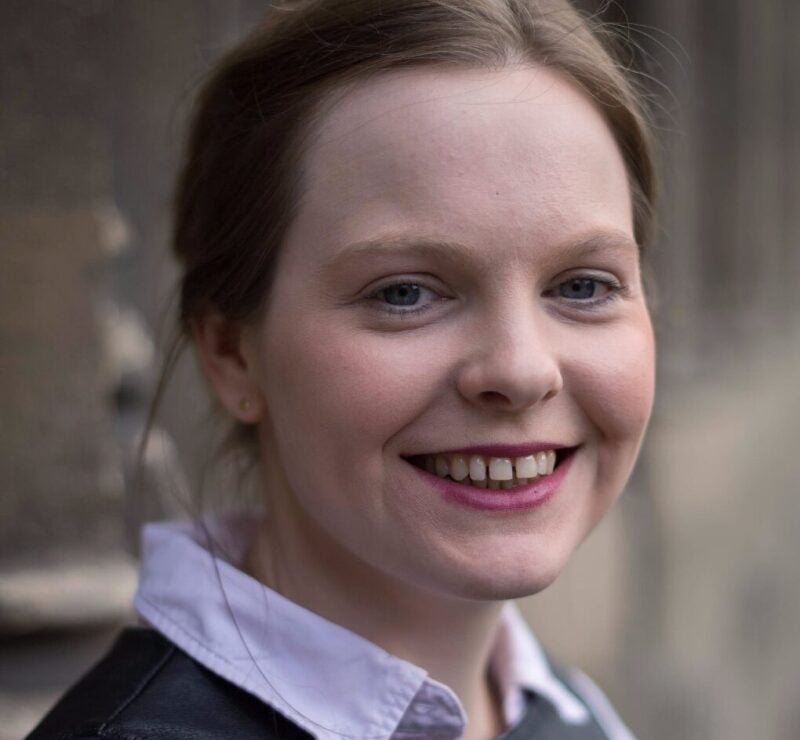
Kate Ferguson joined The Sun on Sunday as political editor in 2022 after being deputy political editor at The Sun since 2019.
Ferguson started her journalism journey as a cub reporter on the Willesden & Brent Times and then the Ham & High. She developed her skills by working as a crime reporter for the Press Association.
“I am hugely excited to be the new Sun on Sunday political editor – it is a dream job for me. With the economy in crisis, the war in Europe and rebellions in Parliament, our political coverage has never been more important,” the journalist stated when she took the role.
The Times – Steven Swinford (2021 – present)
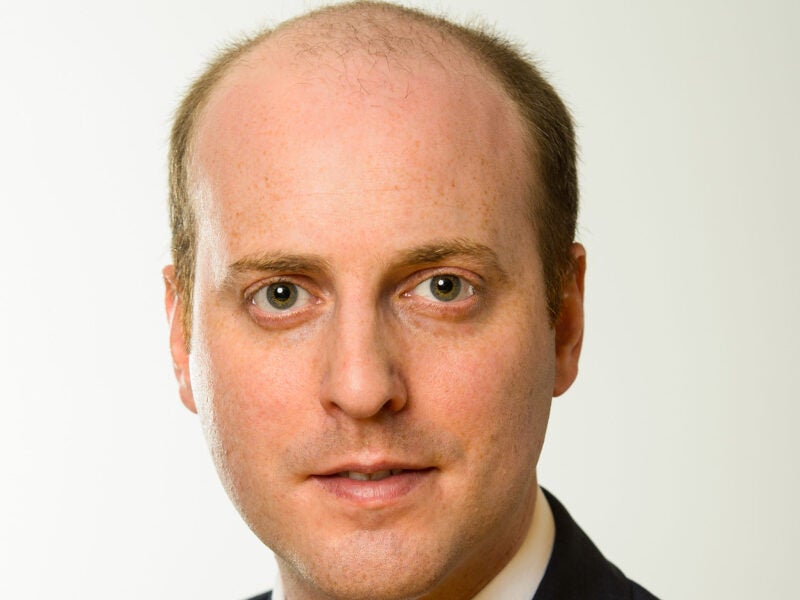
Steven Swinford is The Times’ political editor and has been since 2021. Prior to this, he was deputy political editor under Francis Elliott.
Swinford’s career also involved being deputy political editor at The Daily Telegraph and a reporter at The Sunday Times.
The Sunday Times – Caroline Wheeler (2021 – present)
The Sunday Times’ political editor is Caroline Wheeler, who took up the role in 2021.
The journalist graduated in political science and government from the University of York in 1999, and then undertook a Master’s degree in newspaper journalism at the University of Wales, Cardiff.
Right after the end of her studies, Wheeler became a trainee reporter for Trinity Mirror Group PLC, where she remained for four years. In 2004, she covered the role of parliamentary correspondent for Local World Media from 2004 until 2014, before embarking on another journey as political editor for Sunday Express, where Wheeler worked for three years.
Wheeler took up a role at The Sunday Times in 2017 as deputy political editor until 2021, at which point she stepped up to be the political editor.
Throughout her career, Wheeler has broken multiple agenda-setting stories about the Covid-19 pandemic, Brexit and the 2017 general election.
The acclaimed journalist was included in Russia’s Ministry of Foreign Affairs’ journalist blacklist. “The British journalists included in the list are involved in the deliberate dissemination of false and one-sided information about Russia and the events in Ukraine and Donbas. With their biased assessments, they also contribute to fueling Russophobia in British society,” the Ministry declared in June 2022.
The Independent – Andrew Woodcock (2019 – present)
Andrew Woodcock has covered the role of political editor at The Independent since 2019.
Before starting his career, Woodcock graduated from the University of Cambridge in French and German in 1989.
Six years later he joined Press Association, where he worked from 1995 until 2011 as chief political correspondent and from 2011 until 2019 as political editor. After almost 24 years at the same company, Woodcock switched over to The Independent, where he still works today.
Throughout his career, The Independent’s political editor has reported on four prime ministers and five general elections. Woodcock has also filed dispatches from Afghanistan, Iraq and Lybia, as well as flying on Air Force One with former US President Barack Obama.
The i – Hugo Gye (2021 – present)
Hugo Gye’s career started in 2011 when he joined MailOnline as a reporter. The journalist covered that position until 2016 when he was promoted to associate news editor.
After his experience at MailOnline, Gye moved to The Sun as a digital political editor until 2019.
The journalist joined The i Paper in 2019, first as deputy political editor and then as political editor in 2021.
The Daily Mail – Jason Groves (2021 – present)
Jason Groves was appointed as political editor of the Daily Mail in 2021.
He has also worked for publications such as the Daily Express, MSN and USA Today, according to his Muck Rack profile.
[See also: Editor Danny Groom on why ‘market leader’ Mail Online is expanding royal coverage]
The Mail on Sunday – Glen Owen (2018 – present)
Glen Owen, a Cambridge graduate, is The Mail On Sunday’s political editor.
Owen was promoted to the role of deputy political editor in 2018, replacing Simon Walters.
Owen became embroiled in a scandal in April 2022 when he reported that some anonymous members of the Conservative Party had accused Labour deputy leader Angela Rayner of “crossing and uncrossing her legs” to distract Boris Johnson while comparing her to Sharon Stone in the movie Basic Instinct (1992).
Daily Mirror – John Stevens (2022 – 2024)
Update on 16 August 2024: John Stevens is leaving the Mirror to become a special adviser to senior Labour MP Pat McFadden. His successor has not yet been announced.
After graduating in economics and politics from the University of Exeter, John Stevens completed a Master’s in newspaper journalism at City, University of London. His Master’s was funded by a Scott Trust scholarship, which also allowed him to work at the Guardian and the Observer for two months.
With his involvement in the university’s student newspaper, Stevens continued his career by working as a parliamentary researcher for the UK House of Lords for less than a year, and then starting at the Daily Mail, where he stayed for around 12 years ending up as deputy political editor.
In 2022, Stevens switched over to the Daily Mirror, where he was appointed political editor, taking over from Pippa Crerar.
He was shortlisted in the Politics Journalism category at the British Journalism Awards in 2023 for revealing a Partygate tape showing inside a lockdown-breaking Westminster party.
While at the Mail he was shortlisted for the Politics Journalism prize for revealing that then-Foreign Secretary Dominic Raab was on holiday and apparently “too busy” to help British troops’ Afghan translators during the fall of Kabul.
Daily Express – Sam Lister (2022 – present)
Sam Lister was promoted to political editor at the Daily Express in 2022.
Lister started her journalism career working as a trainee reporter with the Stockport Express and then joined the Tameside Advertiser as a senior reporter in 2001. In 2011, she became the political correspondent for Press Association. She remained there for almost eight years and, in 2018, she became deputy political editor at the Daily Express.
Upon hiring, the Daily Express editor-in-chief Gary Jones said: “I’m absolutely delighted Sam has agreed to head up our political team. She’s a brilliant journalist, whose passion for politics will help make our stories, comment and analysis across digital and print, the most relevant and engaging for our ever-increasing audience.”
Sunday Express – David Williamson (2022 – present)
David Williamson graduated from the University of Aberdeen and then started his journalism career.
He worked as a political editor at the Western Mail and Wales Online after serving as a trainee reporter and business correspondent.
Williamson is now covering the role of political editor at the Sunday Express, after being promoted from deputy.
Financial Times – George Parker (2007 – present)
George Parker has been the Financial Times’ political editor since 2007. The journalist was previously the FT’s bureau chief in Brussels, reporting on the EU and Westminster.
Parker has reported throughout his career on some of the most dramatic events in modern British history, such as the financial crash of 2008, the coalition government and Brexit.
FT’s political editor is also a regular speaker on Radio 4’s Week in Westminster and has also appeared on shows like BBC One’s (now-defunct) Andrew Marr show and Radio 4’s Today programme.
The Telegraph – Ben Riley-Smith (2021 – present)

Ben Riley-Smith graduated from Cambridge University with a BA in history and went on to obtain a Master’s degree in journalism at City, University of London in 2012.
Riley-Smith’s career has revolved around only one publication: The Telegraph. He started in 2012 as a trainee reporter, and the journalist quickly climbed the ladder. In 2014, Riley-Smith was promoted to Scottish political correspondent and then to political correspondent. Smith stayed in that role until 2016, when he became assistant political editor.
After one year of covering this role, Smith took on the job of US editor until 2021, when he was appointed as political editor.
The Sunday Telegraph – Camilla Turner (2024 – present)
Camilla Turner took over from Edward Malnick as political editor of The Sunday Telegraph in April 2024 when Malnick became head of live features for The Telegraph.
She had been The Telegraph’s chief political correspondent for two years and was education editor for five years before that.
She first joined The Telegraph in 2013 as an editorial trainee and has worked her way up from news reporter and investigations reporter.
According to Linkedin Turner studied history at the University of Oxford and then did City University’s MA Investigative Journalism course.
[See also: National press ABCs: i reports smallest annual decline in March]
Evening Standard – Nicholas Cecil (2021 – present)
Nicholas Cecil is the political editor at the Evening Standard.
He mostly covers Westminster stories, as well as foreign affairs and other major events affecting the UK and EU. Cecil reported on the Covid-19 pandemic, air pollution, and climate change as well as some sports stories.
Who are the UK broadcast political editors?
BBC News – Chris Mason (2022 – present)
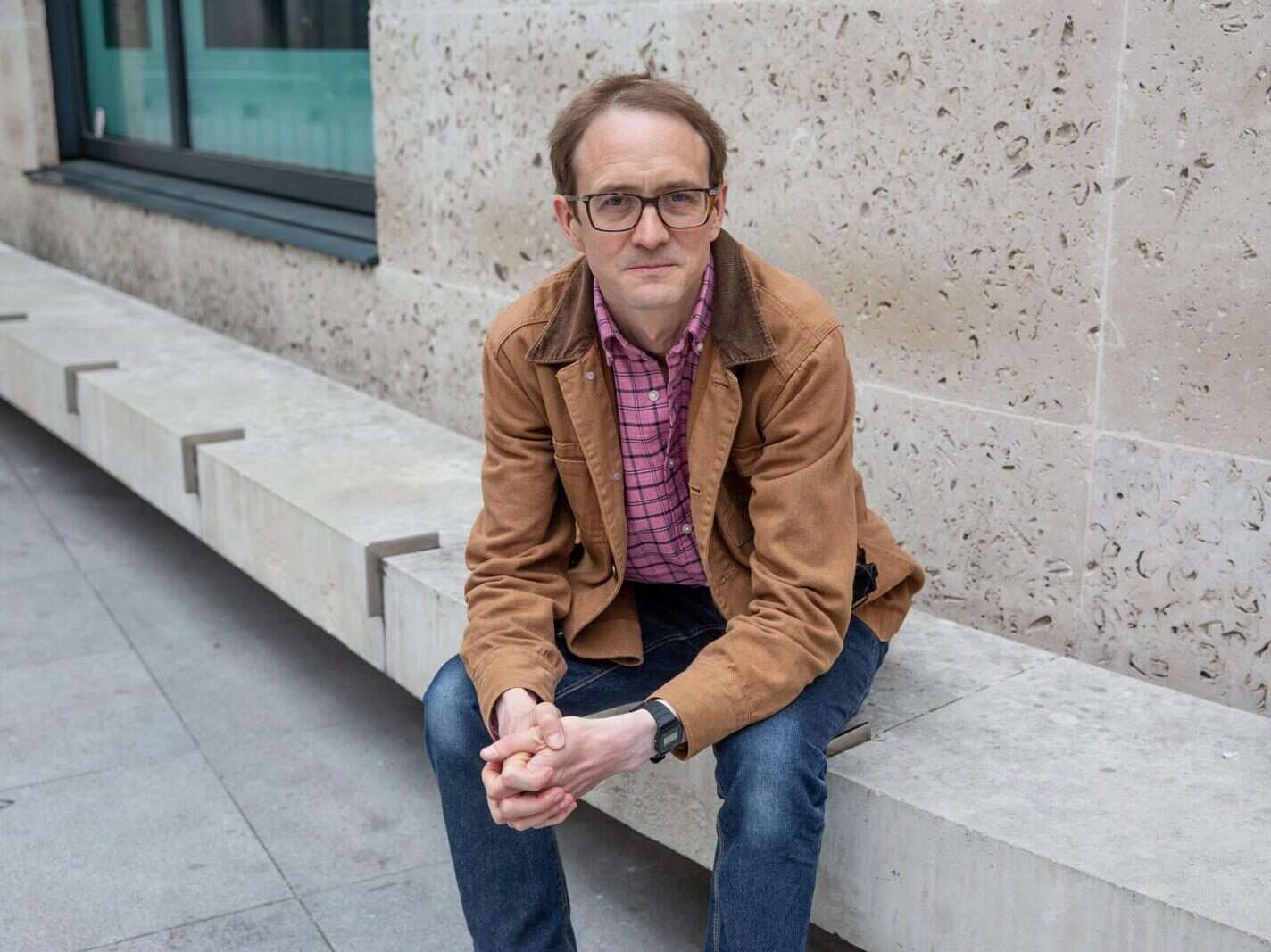
Yorkshire native Chris Mason was born into a family of teachers and, since a young age, he thoroughly enjoyed listening to the radio and had the ambition of being a presenter one day.
Mason studied geography at Cambridge University but also achieved a postgraduate diploma from City, University of London in broadcast journalism, in 2002. Straight after finishing his master’s degree, Mason got a job at BBC Newcastle and then moved to the Westminster desk.
The new BBC political editor was a Europe correspondent at BBC News until 2006, before moving to BBC Radio 5 Live. He then became a political correspondent at BBC News in 2012. Five years later, Mason began presenting the Brexitcast podcast alongside Adam Fleming.
In 2022, Mason was offered the job as BBC News political editor, taking over from Laura Kuenssberg, who took over the BBC Sunday morning TV politics slot, replacing Andrew Marr.
ITV News – Robert Peston (2015 – present)
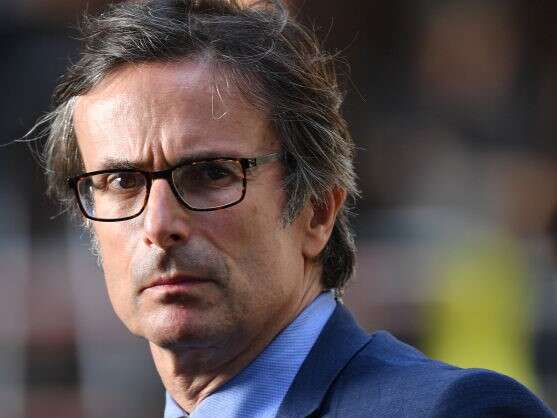
London-born Robert Peston is the son of Labour Peer Baron Maurice Peston.
After graduating in philosophy, politics and economics at Oxford University, Peston moved to Bruxelles to obtain a master’s degree at the Universite libre de Bruxelles. A year later, in 1983, Peston started his journalistic career at Investors’ Chronicle, working his way up to the Independent, Financial Times and Sunday Telegraph.
From print, the acclaimed journalist switched over to TV, when he started working for the BBC in 2005 as a business editor. Peston became one of the most renowned and respected journalists of modern Britain thanks to one particular scoop. Northern Rock and the financial crisis, which won him the Royal Television Society’s Television Journalism Award for Scoop of the Year in 2008.
After becoming the economics editor for the BBC, he moved to ITV in 2016 to become the broadcaster’s political editor. However, his role has caused him stress, telling Press Gazette: “I’m never relaxed. Like many journalists, I’m terrified that if I don’t get the next story, I’ll be out of a job.”
Today, The Pest – as is his nickname – also hosts his own Wednesday programme, Peston.
Channel 4 News – Gary Gibbon (2005 – present)
English journalist Gary Gibbon has been Channel 4 News’ political editor since 2005.
Born in Harrow, where he also attended school, Gibbon then headed to Balliol College, Oxford, where he obtained an undergraduate degree in History. After leaving education, Gibbon started to climb the journalism ladder.
While at Channel 4, he covered four general elections and wrote impactful stories throughout the years. For instance, in 2001, the political journalist’s interview with Peter Mandelson motivated the Northern Ireland Secretary’s second resignation from the Cabinet.
Gibbon is an acclaimed journalist, having won the Royal Television Society Home News Award with Jon Snow thanks to their scoop on the attorney general’s legal advice on Iraq in 2006.
Sky News – Beth Rigby (2019 – present)
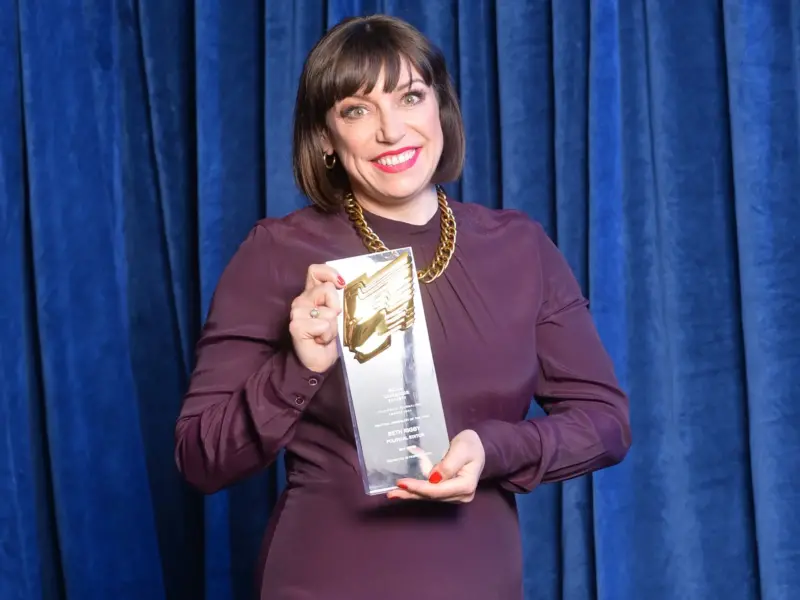
Born in Colchester, Beth Rigby graduated from Fitzwilliam College in Cambridge in social and political science and then achieved a Master’s Degree in economics at the University of London.
Rigby joined Sky News in 2016 as a senior political correspondent and became deputy political editor before getting the political editor job in 2019.
Previously she was chief political correspondent at the Financial Times and media editor at The Times.
5 News – Andy Bell (1999 – present)

From 1999 to the present day, Andy Bell has been covering the position of political editor at ITN’s Channel 5 News.
The Cambridge graduate, after obtaining his degree in history in 1984, moved to the US to attend a Master’s course in international relations and affairs at the University of Pennsylvania.
His career took him all over the world, starting in Paris, where Bell worked as a stand-in correspondent for The Guardian from 1990 until 1993. The journalist’s experience led him to obtain a long-lasting job at the BBC, where he worked for almost nine years, first as a foreign affairs correspondent at Today Programme and then as a BBC Paris correspondent, until 1996.
GB News – Christopher Hope (2023 – present)
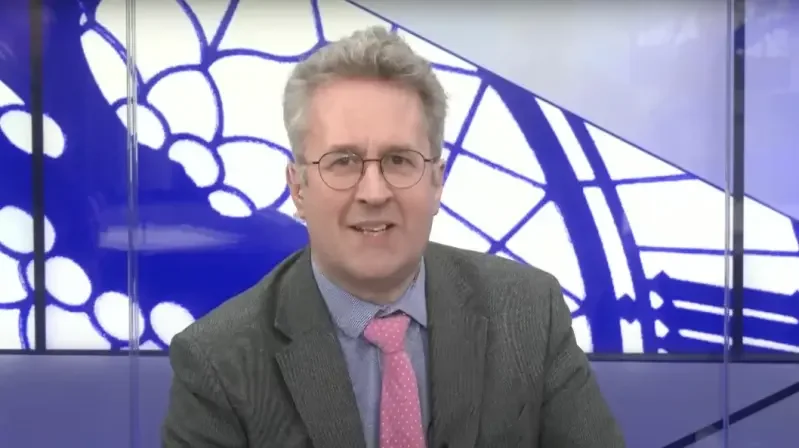
Christopher Hope joined GB News as head of politics and political editor in 2023 after spending almost 20 years at The Telegraph.
He had been a member of The Telegraph’s parliamentary lobby team since 2006 and at the time of his departure hosted a weekly politics podcast, Chopper’s Politics.
Before moving into political journalism Hope was business correspondent for The Scotsman, the launch chief business writer for Business AM in 2000, City editor for The Herald and business correspondent for The Daily Telegraph when he first joined the newspaper in 2003.
Hope studied politics at Bristol University and then magazine journalism at Cardiff’s School of Journalism, Media and Culture. His first journalism jobs were on trade titles Print Week and Construction News.
[See also: Who are GB News’ presenters? Everything you need to know]
Email pged@pressgazette.co.uk to point out mistakes, provide story tips or send in a letter for publication on our “Letters Page” blog
Related
Llyods Recruiting Engineers In India After Slashing Jobs In UK
Lloyds Banking Group is planning to hire hundreds of engineers in India as the company plans to shift its employment opportunit
Major new funding for music acts that supercharged careers of…
£1.6m Music Export Growth Scheme to support 58 independent UK artists to tour the world Funding will boost UK’s creative industries – a key growth se
Well-loved restaurant chain to close 8 venues across UK as…
A BELOVED restaurant chain has announced it will close eight venues across the UK, scrapping 158 jobs in the process.Owners are pointing the finger at Labour's
US adds 151,000 jobs in February as unemployment rate ticks…
The latest figures published by the US Bureau of Labor Statistics today (7 March) came in below market expectations, with economists polled by












